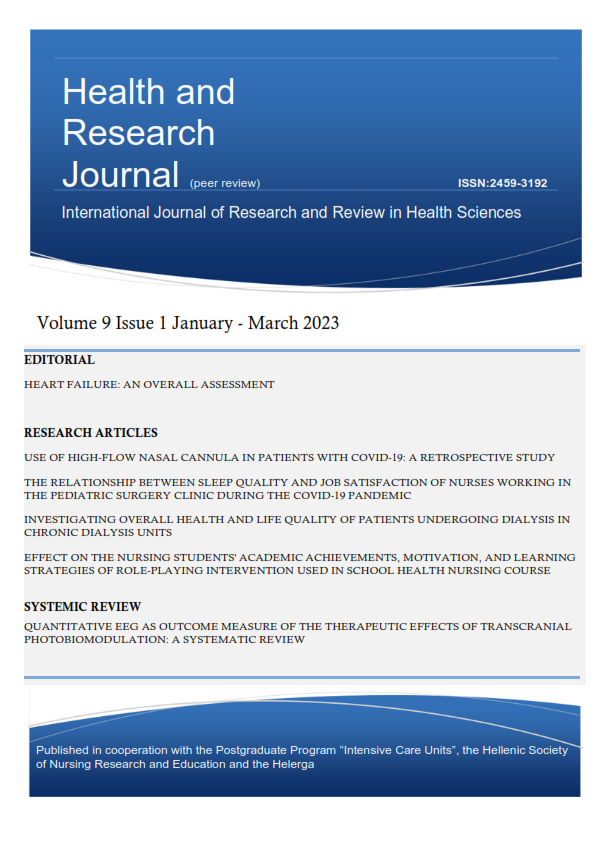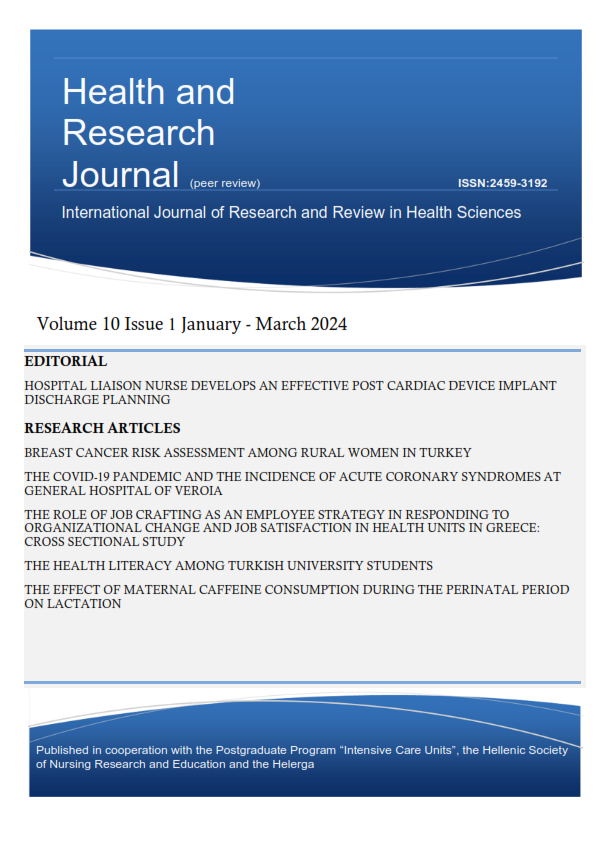Effect on the nursing students' academic achievements, motivation, and learning strategies of role-playing intervention used in school health nursing course Role-Playing in Nursing Education

Abstract
Background: Clinical practice areas are more limited, especially in sub-specialties such as school and occupational health. Different training techniques such as role-playing and simulation enable an opportunity to solve these problems.
Aim: This study aimed to evaluate the effect of role-playing related to school-health screenings on nursing students’ academic achievement, motivation, and learning strategies.
Method and Material: A quasi-experimental study was performed with experimental and control groups. Data were collected from 56 nursing students as data collection tools were used Motivated Strategies for Learning Questionnaire and Grade Point Average.
Results: After the role-playing, the grade point average scores of the students in the experimental group were significantly higher than those in the control group. Nursing students in the experimental group had a significantly higher mean score in intrinsic goal orientation, control of learning beliefs, organization, critical thinking, peer learning, and metacognitive self-regulation at the post-test compared to the control group.
Conclusions: The results of this study demonstrated that the role-playing intervention changed the learning strategies used by nursing students. Also, it increased the use of metacognitive strategies, organizing, explaining, and critical thinking while boosting collaborative learning strategies such as peer collaboration and help-seeking.
Article Details
- How to Cite
-
Emlek Sert, Z., Topçu, S., & Bayık Temel, A. (2023). Effect on the nursing students’ academic achievements, motivation, and learning strategies of role-playing intervention used in school health nursing course : Role-Playing in Nursing Education. Health & Research Journal, 9(1), 35–45. https://doi.org/10.12681/healthresj.30343
- Section
- Original Articles
Copyright notice:
Authors retain copyright of their work and grant the Health and Research Journal the right of first publication.
License:
Articles are published under the Creative Commons Attribution 4.0 International License (CC BY 4.0). This license permits use, sharing, adaptation, distribution, and reproduction in any medium or format, including for commercial purposes, provided that appropriate credit is given to the author(s) and the original publication in this journal, a link to the license is provided, and any changes are indicated.
Attribution requirement:
Any reuse must include the article citation and DOI (where available), and indicate if changes were made.



